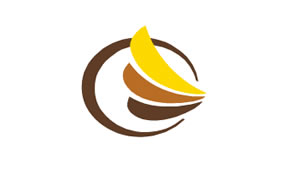Color Combination in Logo Design
Explain Color Combination
Color combination (color scheme) is the choice of colors used in design for a range of media. In logo design, a basic color combination will use two colors that look appealing together. More advanced color schemes involve several colors in color scheme. To make logo color combination balanced and harmonious, different types of color schemes are used in logo design.
Color Wheel
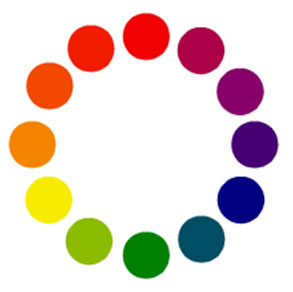
Color Combination Types
Monochromatic Colors
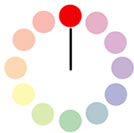 |
Monochromatic color is derived from a single hue, and extended using its shades, tones and tints. As a result, the energy is more subtle and peaceful due to a lack of contrast of hue. |  |
Analogous Colors
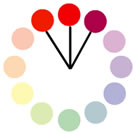 |
Analogous colors are colors that are adjacent to each other on the color wheel. Analogous colors are in nature and are pleasing to the eye. It gives a bright effect, and can accommodate many changing moods. |  |
Complementary Colors
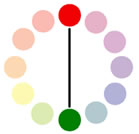 |
Complementary colors are colors that are opposite each other on the color wheel. Complementary color schemes have a more energetic feel. The high contrast between the colors creates a vibrant look, especially when used at full saturation. |
 |
Split-complementary Colors
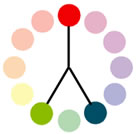 |
Split-complementary color is a main color and the two colors on each side of its complementary (opposite) color on the color wheel. These are the colors that are one hue and two equally spaced from its complement. |  |
Double-complementary Colors
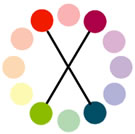 |
Double-Complementary colors are two complementary color sets; the distance between selected complementary pairs will affect on the overall contrast of the final composition. | 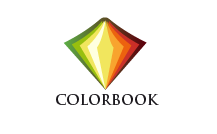 |
Triad Colors
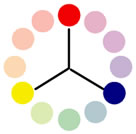 |
The triad color scheme is three colors on the color wheel in a triangle. |  |
Want to get more inspiration for logo design? Please read our free logo resources list.
Create symbolic logo in Sothink Logo Maker Pro
Smart symbolic logo maker with quick drawing tool and rich built-in resource, enrich your logo designer inspiration and help you generate symbolic logos in minutes.
Logo Resource
- The blog presents the colorful logos and logo design. View making symbol colors as rainbow .
- The article lists many logos with color. View 20 refreshing green logo.
Logo Infographic
- Want to design a unique and unforgettable logo? Please check logo design tips.
- Spark and enrich your logo design inspiration! Learn more from logo ideas from styles.
Logo Tutorial
- How to Design a Colorful Go Logo?
Click to view process of designing colorful logo. - Inspire logo design. Click to view logo works to get some inspirations from logo design.

